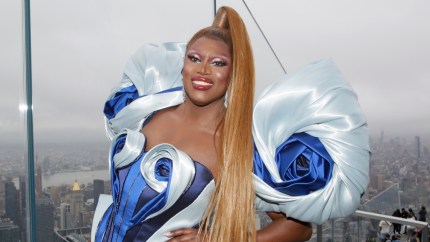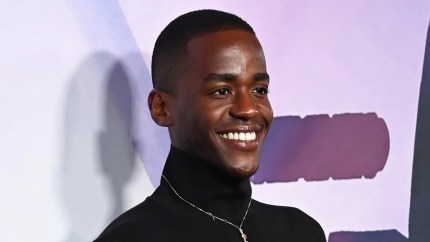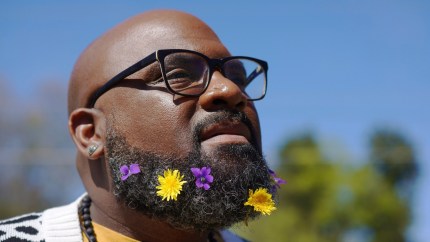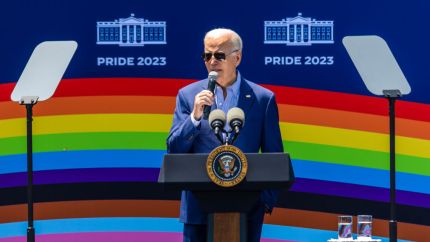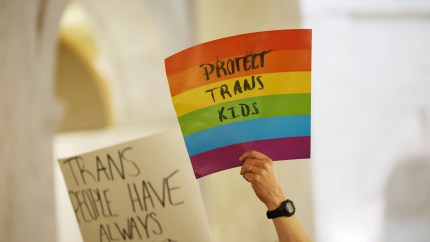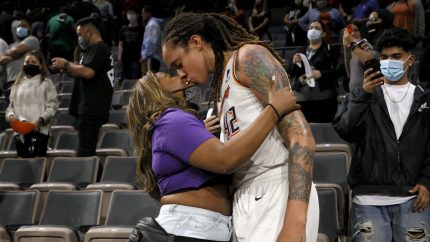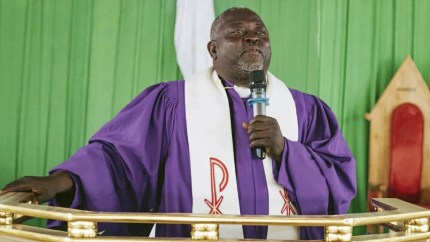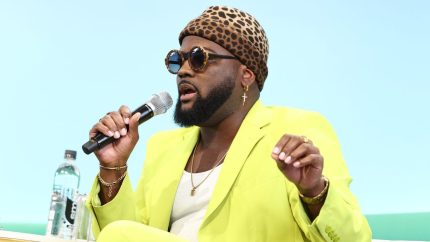Black LGBTQ+ resilience should not be a necessary part of survival
OPINION: While having resilience can be a positive, it is not a strategy for solving the real challenges that Black LGBTQ+ people face.
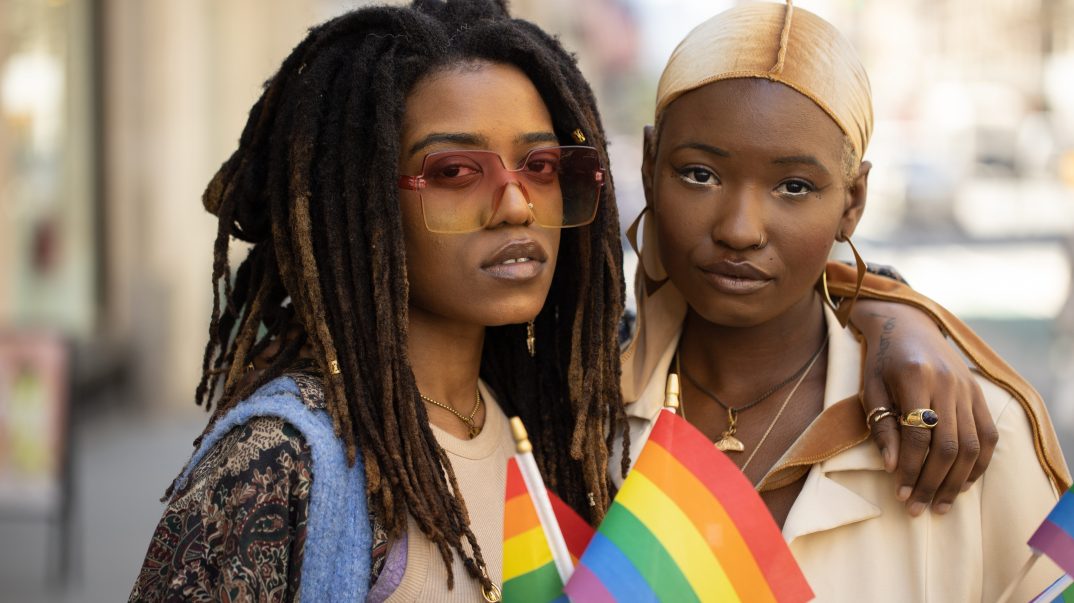
Editor’s note: The following article is an op-ed, and the views expressed are the author’s own. Read more opinions on theGrio.
In February, we often hear “resilient” used to describe the courage and strength that Black communities demonstrate in the face of adversity. And rightly so; we are undoubtedly resilient. Even a basic understanding of history and the adversity experienced by our ancestors confirms that simple, yet profound fact.
Black LGBTQ+ people have a particularly storied history of overcoming adversity and thriving in spite of it. However, when in conversations about solving the very real challenges that Black LGBTQ+ people face, I have noticed a tendency to always talk about resilience. I often wonder, “What does it mean?” when others acknowledge the systemic oppression experienced by Black LGBTQ+ people, but then choose to focus their attention on the efforts that Black LGBTQ+ people themselves are already employing to survive.
I empathize with the desire to focus on the positive, especially when, for so long, any discussion of Black LGBTQ+ people was only defined by negative and usually pathologizing narratives. In practice, this focus frequently derails the work of addressing the structures that put Black LGBTQ+ people in jeopardy to begin with. As well-meaning as that focus may be, I suspect many don’t realize how continually highlighting my resilience ignores the power and privilege that comes with never needing to be resilient in the first place.
There are, of course, productive ways to discuss resilience. Often the best solutions to the issues facing Black LGBTQ+ communities are already known but require additional support and resources. Discussing the intersectional discrimination Black LGBTQ+ people face is challenging, difficult and even, at times, traumatizing. Yet we must navigate racism, queerphobia and other forms of oppression that threaten our communities. The value of celebrating resiliency among Black LGBTQ+ people is when we use it to illustrate our capacity to creatively problem-solve in the face of systemic injustice and limited resources. It cannot be an excuse for complacency nor absolve us of a collective responsibility to move closer to a world where resilience is not a necessary part of survival.
In my role as the director of research science at The Trevor Project, the leading suicide prevention organization for LGBTQ+ young people, my work focuses on improving and advancing the lives of LGBTQ+ youth by conducting research that helps us better understand the unique stressors that negatively impact the mental health of the LGBTQ+ community. To accurately capture the diverse, lived experiences of LGBTQ+ young people, we apply an intersectional lens, taking into account the complexities that exist at the intersection of holding multiple marginalized identities. The more marginalized identities a person holds, the more opportunities they have to be discriminated against. But it’s also more than that because these intersections of identity fundamentally shape one another. Extrapolating from past research with either predominantly white LGBTQ+ people, or predominantly cisgender and heterosexual Black people, has limited utility.
The prevalence and harm of racial discrimination experienced by Black communities cannot be overstated, so much so that professional organizations, health departments, and even the Centers for Disease Control and Prevention (CDC) have declared racism a “public health threat.” We know that it can have a direct impact on increased suicide risk. When we also examine the various other forms of discrimination that Black LGBTQ+ young people experience, the consequences are unmistakable.
Our research shows that Black LGBTQ+ young people experience high rates of discrimination related to their race or ethnicity, as well as their LGBTQ+ identities. Over two-thirds (70%) of Black, cisgender LGBQ young people experienced at least one form of discrimination related to their race, sexual orientation or gender identity in the past year, while even more Black transgender, nonbinary or questioning young people (83%) experienced the same.
We found that just over one in five (21%) of Black transgender, nonbinary or questioning young people reported a suicide attempt in the past year. Even more telling is that as Black transgender, nonbinary or questioning young people reported experiencing additional types of discrimination, they were more likely to have reported attempting suicide in the past year. Expecting Black LGBTQ+ people to simply cope with these high rates of discrimination forever is unacceptable. The goal has to be doing the work that prevents discrimination in the first place.
LGBTQ+
I started my professional career with a focus on HIV prevention and treatment research with Black same-gender loving men. In retrospect, I was probably drawn to this specific aspect of public health because I wanted my work to, in some way, empower my own community. But even within a space primarily occupied with how to use research to support Black same-gender loving men, I was frequently the only Black same-gender loving researcher in the room. It is unfortunate that conversations around equity and inclusion have become so derailed by bad-faith actors because it distracts from the practical consequences of not having a seat at the table. Despite assertions otherwise, even science is not fully objective; who we are as researchers and what our lived experiences are matter to our work. A critical part of my job now is recognizing this fact and being mindful of how we meaningfully include a diversity of LGBTQ+ voices and experiences in our research endeavors. This has implications for the types of questions we ask, how we collect, measure and analyze data, and ultimately, how we disseminate what we learn in a way that informs and empowers the communities we serve.
It’s crucial to note that LGBTQ+ young people are not inherently prone to suicide risk because of their sexual orientation or gender identity but rather placed at higher risk because of how they are mistreated and stigmatized in society. The Minority Stress Model suggests that experiences of LGBTQ-based victimization can result in negative mental health outcomes and increase suicide risk. While supportive environments can mitigate this, it is important to note that for Black LGBTQ+ people, our experiences of community support are often shaped by the additional complexities of racism within queer spaces as well as homophobia within Black spaces.
Because of the intersectional nature of discrimination experienced by Black LGBTQ+ young people and its consequences for their mental health, we cannot silo efforts to combat racial discrimination in one place and anti-LGBTQ+ discrimination in another. This begins with evaluating what efforts we are taking to end interlocking forms of oppression. And it continues by doing the difficult, but rewarding, work of forming a coalition with others. It is no coincidence that discriminatory policies related to banning discussion of LGBTQ+ history, dismantling racial equity and inclusion programs and eliminating access to gender-affirming care are all on the rise at the same time. That Black LGBTQ+ young people exist at the intersection of these policies should be a powerful reminder: The enterprise of oppressing others is never confined to targeting a single group.
I urge parents, guardians, mental health professionals, educators and youth-facing adults to better understand the diverse and layered experiences that exist at the intersection of race/ethnicity and sexual orientation or gender identity so they can play a role in dismantling oppression in all its forms. The Trevor Project has resources for how to support Black LGBTQ+ young people that you can access to start this journey, including ways to approach conversations about the intersection of race with LGBTQ+ identity. This also means having thoughtful and respectful conversations with Black LGBTQ+ young people who recognize them as the experts of their own lived experiences.
I can think of no better time to look forward to the future we are creating for Black LGBTQ+ young people than Black History Month. I’m angered at the adversity our young people have to endure, but I’m also encouraged and inspired by those Black queer pioneers who came before. I want Black LGBTQ+ young people to see themselves in Audre Lorde, James Baldwin, Marsha P. Johnson, Bessie Smith, Langston Hughes, Alvin Ailey, Lorraine Hansberry and countless others. I want them to live in a world where they are safe, celebrated and have the freedom and trailblaze in ways I can’t even imagine.
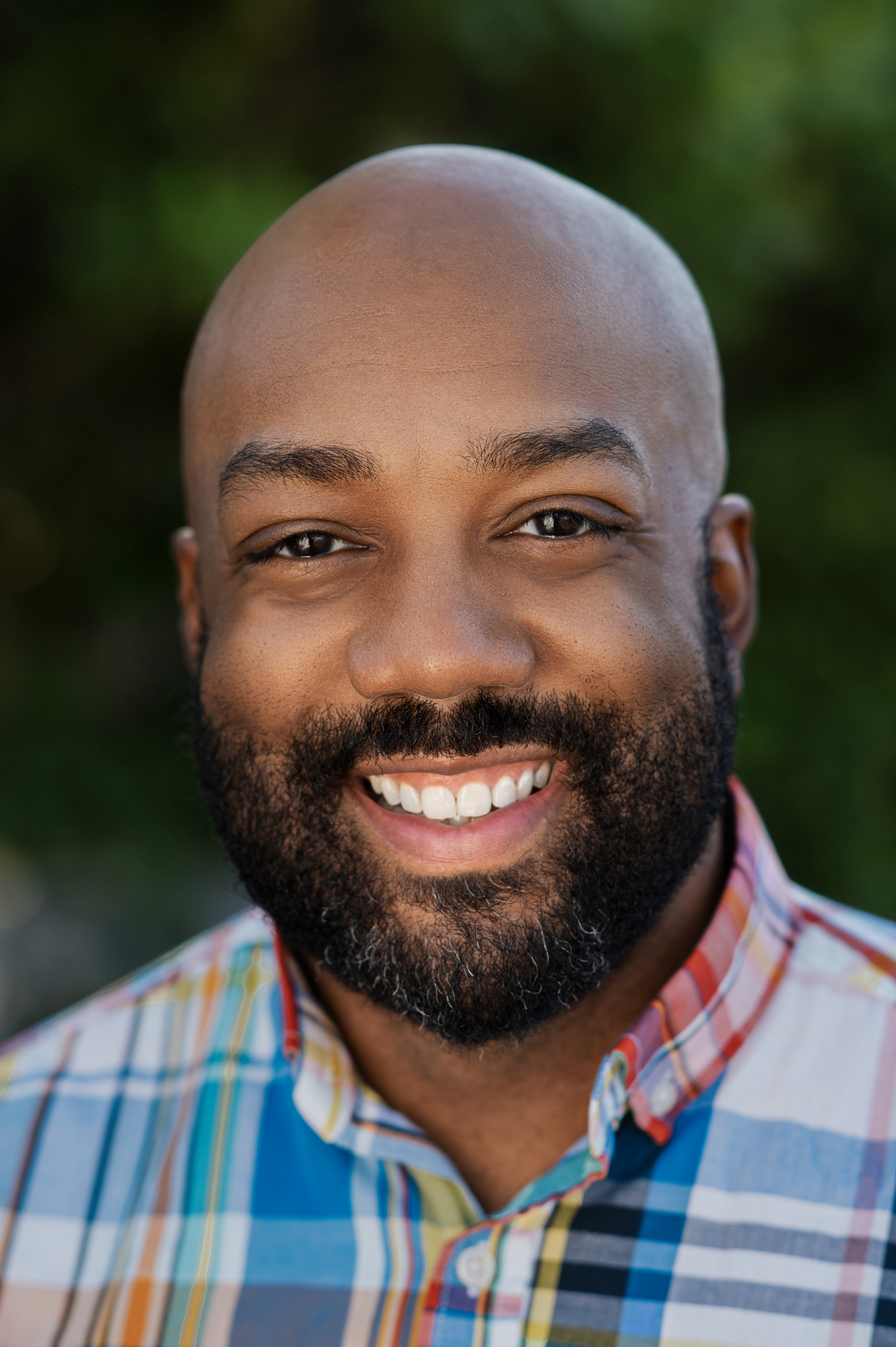
Dr. Derrick Matthews (he/him) is the director of research science at The Trevor Project, the leading suicide prevention and crisis intervention organization for LGBTQ+ young people. His research focuses on the health and well-being of LGBTQ+ populations, with a specific focus on how racism and anti-queer oppression affect the lives of LGBTQ+ people of color.
Never miss a beat: Get our daily stories straight to your inbox with theGrio’s newsletter.
